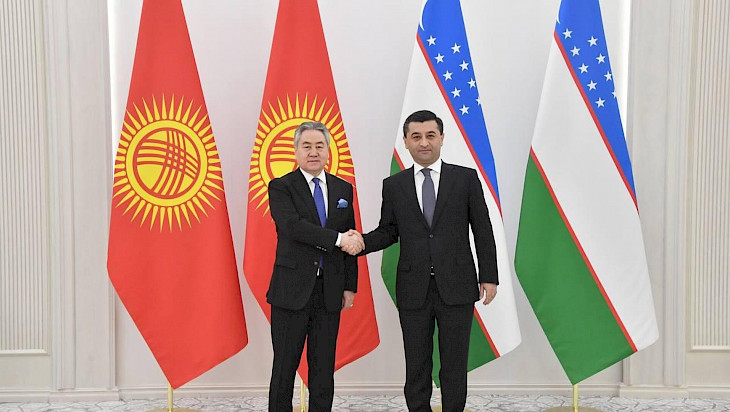Kyrgyzstan and Uzbekistan have prepared in advance for the meeting of the foreign ministers of the Strategic Dialogue "Central Asia - Cooperation Council of Arab States of the Gulf", which begins its work in Tashkent, Eurasia Today reports.
The Foreign Minister of Kyrgyzstan, Zheenbek Kulubaev, and the Foreign Minister of Uzbekistan, Bakhtiyor Saidov, have already developed common theses on mutual trust and cooperation.
"Today, the Central Asian region, more than ever, serves as an important example of good neighborly relations," noted Bakhtiyor Saidov at the preliminary meeting.
It is expected that all foreign ministers will confirm this position in order to present Central Asia as a region of stability and security.
Moreover, since most of the Central Asian countries are members of the CSTO, SCO, and CICA, representatives of the foreign ministries of Kazakhstan, Kyrgyzstan, Tajikistan, Turkmenistan, and Uzbekistan are present at the meeting, along with colleagues from Bahrain, Qatar, Kuwait, the UAE, Oman, and Saudi Arabia.
As the Palestinian-Israeli conflict has already impacted and will continue to affect the countries of Central Asia, it is important to reconsider the logistics of transport corridors. In particular, to assess the possibilities of full implementation and operation of transportation and logistics projects by the USA, EU, China, and Russia.
Experts believe that further escalation of the conflict between Iran and Israel could disrupt logistics chains, including "this may affect the Kazakhstan-Turkmenistan-Iran railway and initiatives to launch high-speed freight trains on the Chelyabinsk-Bolashak-Iran route."
In the new realities, the importance of promoting the Trans-Afghan transport route is increasing, but in this case, the countries of Central Asia will have to accept that Afghanistan will complete the Kosh Tepa irrigation canal, into which water will be diverted from the Amu Darya River. This, in turn, could lead to an ecological catastrophe - the desiccation of Uzbekistan and Turkmenistan and all countries in the Amu Darya basin.
The next summit in the format of "Central Asia - Cooperation Council of Arab States of the Gulf" was planned by the participating countries to be held in 2025 in Samarkand. But events are unfolding so rapidly that it may either be canceled or held significantly earlier, according to political analyst Yrysbek Osmonov.
CentralasianLIGHT.org
April 15, 2024

